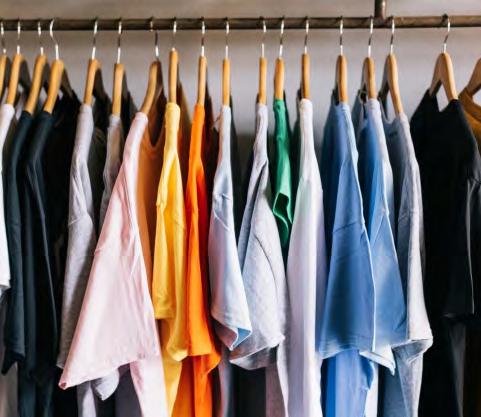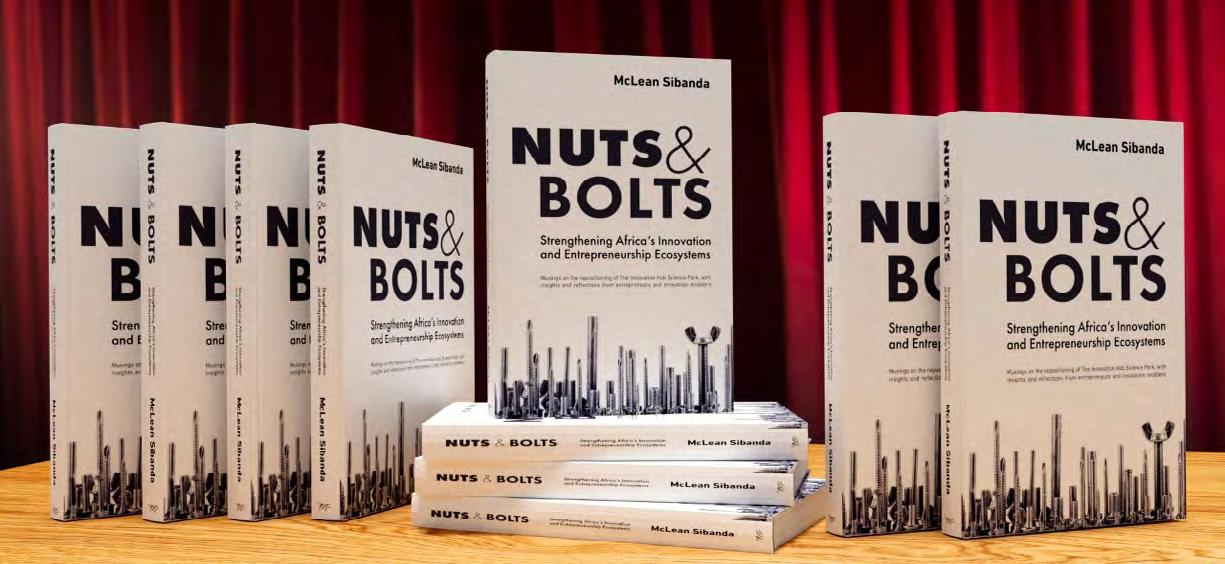
4 minute read
INCLUSIVITY
Creating A Fully Inclusive, Green Ecosystem
Over the last nine years Clothes to Good (CTG) has synergised an ecosystem of like-minded organisations, led by individuals committed to meaningful, sustainable, positive social impact in enterprise development, inclusion (i.e. especially people with disabilities) and caring for our environment. CTG finds great joy in using what others categorise as “waste” to empower community women through micro-business development, create jobs for people with disabilities and creating educational resources for children in low-resourced early childhood development (ECD) centres. We are passionate about using an asset-based approach and empowering communities to “use what they have, where they are”.
Advertisement
Through the sourcing, sorting, up-cycling and selling of post-consumer pre-loved clothes CTG programmes collaborate with high resourced schools, businesses, nonprofit organisations, the public, people with disabilities and their families, and people previously disadvantaged into a sustainable ecosystem. Together, the valuecycle includes people, passion, technology and post-consumer environmental change resulting in sustainable, high social impact.
We are especially passionate about people with disabilities and the challenges generally preventing people with disabilities from becoming gainfully employed. This is reflected by the current South African unemployment rate of 99% among this community. They remain critically dependent on their parents, particularly their mothers, who are often forced to remain at home to provide care, hindering the family’s opportunities and potential to find pathways out of poverty. One of CTG’s focus areas is therefore on a micro-business development programme for Mothers of Children with disabilities.
Critical to achieving this sustainable goal was to marry a real social and environmental challenge with a solution that addresses some of the barriers to empowering mothers of children with disabilities, people with disabilities and people wanting to participate in this
change.
Mothers of children with disabilities are invited to be micro-businesses at CTG. They are provided with a startup ten-kilogram bale of used clothes, recycled through CTG programmes nationally without risk and stress of failure as they can return the bale or pay for the bale.
The women are visited at home, by social workers, occupational therapists, other therapists and facilitators using the ‘Poverty Stoplight’ and other well recognized tools to assess their living conditions, economic standing, situation analysis of their child with disability and their own overall wellness. The aim is to support the mother to move in the direction she chooses by engaging her assets and dreams. Key to this process is improving the support to the child with disability and the inclusion of people with disabilities into the community.
Through the recycling programs many people with disabilities are included into the CTG ecosystem, from people we source clothes from, to suppliers and customers, creating a fully inclusive ecosystem of meaningful change.
CTG follows a value-cycle approach, renewing resources as opposed to exploiting them. CTG sources clothes with the intention that a person recycling their clothes is rewarded for their effort. CTG believes that ‘free is expensive’ and to create a sustainable ecosystem in an emerging economy, participants need to be rewarded for their effort, and not rely on a pure penance culture that is prevalent in first world

diamond economies.
In one of our programmes the public recycles at H&M stores nationally and receives a 15% discount on their new item of choice, while schools and businesses receive, in addition to their H&M discount vouchers money towards outreach programmes.
Some support the CTG programmes: ‘Clothes Play’, supporting low resourced ECD centres, ‘Clothes to Wheels’, fitting children in orthopaedic wheelchairs, ‘Clothes to Trees’, planting indigenous trees or ‘Clothes to Cash’ to invest in their own outreach programme.
The paradigm of CTG is built on the new capitalist manifesto, that breaks traditional views on shareholder value and profitability focus, and is built on a value-cycle focus rather than a value chain ‘get the most out of each resource mentality’. The leadership is focused on a renewable value chain approach, where each participant creates more value, beyond their initial intention. CTG goes beyond recycling postconsumer textile, by creating awareness, empowering student led-change at schools, empowering microbusinesses to be community change agents, insisting on full inclusion of people with disabilities with passionate therapists, educating children at low resourced ECD centres through up-cycled toys, and finding new ways reusing waste with communities and Universities.
The CTG collaboration approach with the individuals, the public, communities, schools, business and NGOs has been key to our success over the last nine years. We are leveraging on each other’s assets to execute on common, shared goals, with an understanding that we are an ecosystem and not a value chain. A value cycle of an ever changing world that requires an adaptive mindset with a strong foundation grounded by the Nine Universal Human Values: Patience, Commitment to Excellence, Forgiveness, Truth, Righteous conduct, Love, Peace, Non-violence, and Service.
To participate in the Clothes to Good value cycle please contact us via www. clothestogood.com or email jesse@c2cx.co.za or call 0126634168 or WhatsApp 0742427414











